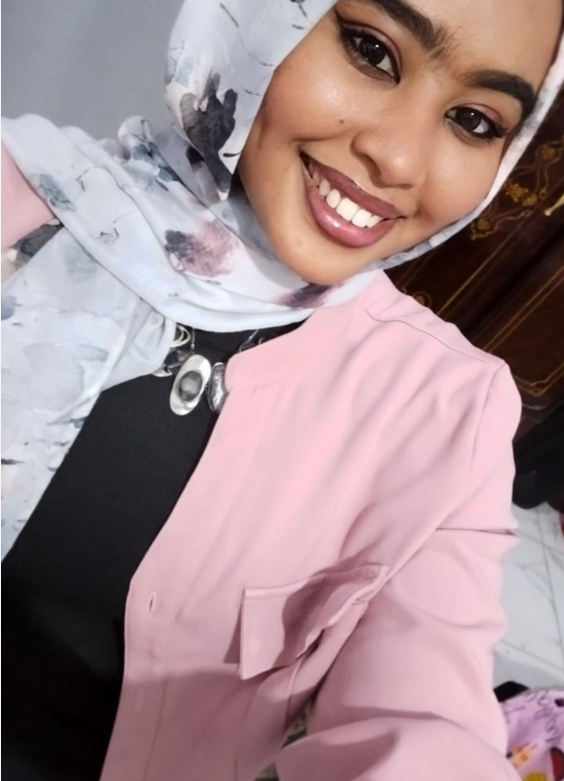Since the beginning of 2025, Sudan has been witnessing a rapid outbreak of cholera amid a fragile healthcare system that has been severely weakened by the ongoing war. According to a report by the United Nations Children's Fund (UNICEF) dated June 18, more than 29,170 suspected cases of cholera have been recorded, including at least 629 deaths, across 15 Sudanese states, including Khartoum, White Nile, Blue Nile, and Kassala.
Earlier data released on June 5 indicated that the total number of cases had already surpassed 73,000, reflecting the swift spread of the disease and the declining capacity to contain it. In Khartoum state alone, Sudan’s Ministry of Health documented nearly 2,119 new infections and 70 deaths within just two days in late May, according to a report by Agence France-Presse (AFP) via MedicalXpress.
This surge in infections coincides with the absence of basic infrastructure, from safe drinking water to simple prevention and treatment supplies—underscoring the severe deterioration of essential living conditions in Sudan as a direct result of the ongoing war since April 2023. Cholera is neither a new nor a complex disease, yet the slow response in preventing or treating it can prove deadly. People in Sudan are dying on a daily basis, not only from gunfire or hunger, but also from preventable diseases such as cholera.
What Sudanese citizens face today is a complex, overlapping crisis: armed conflict, economic collapse, mass displacement, and health insecurity. Ignoring this situation does not diminish its severity; rather, it deepens the disaster. What the people need is not impossible: a rational, effective humanitarian response and honest acknowledgment of the crisis, instead of denial or downplaying its seriousness.
Amid such crises and disasters, the importance of individual and volunteer initiatives becomes increasingly clear, as seen in the efforts of volunteer Moamen Wad Zeinab, who has provided a vivid account from the heart of the crisis. Today, he shares with us in Andariya platform a glimpse of Sudan’s unheard voices, those struggling against impossible odds. Together with fellow volunteers, he continues to fight to save as many lives as possible. For more than two years at Al-Naw Hospital, he has been an ordinary citizen doing everything he can to support patients.
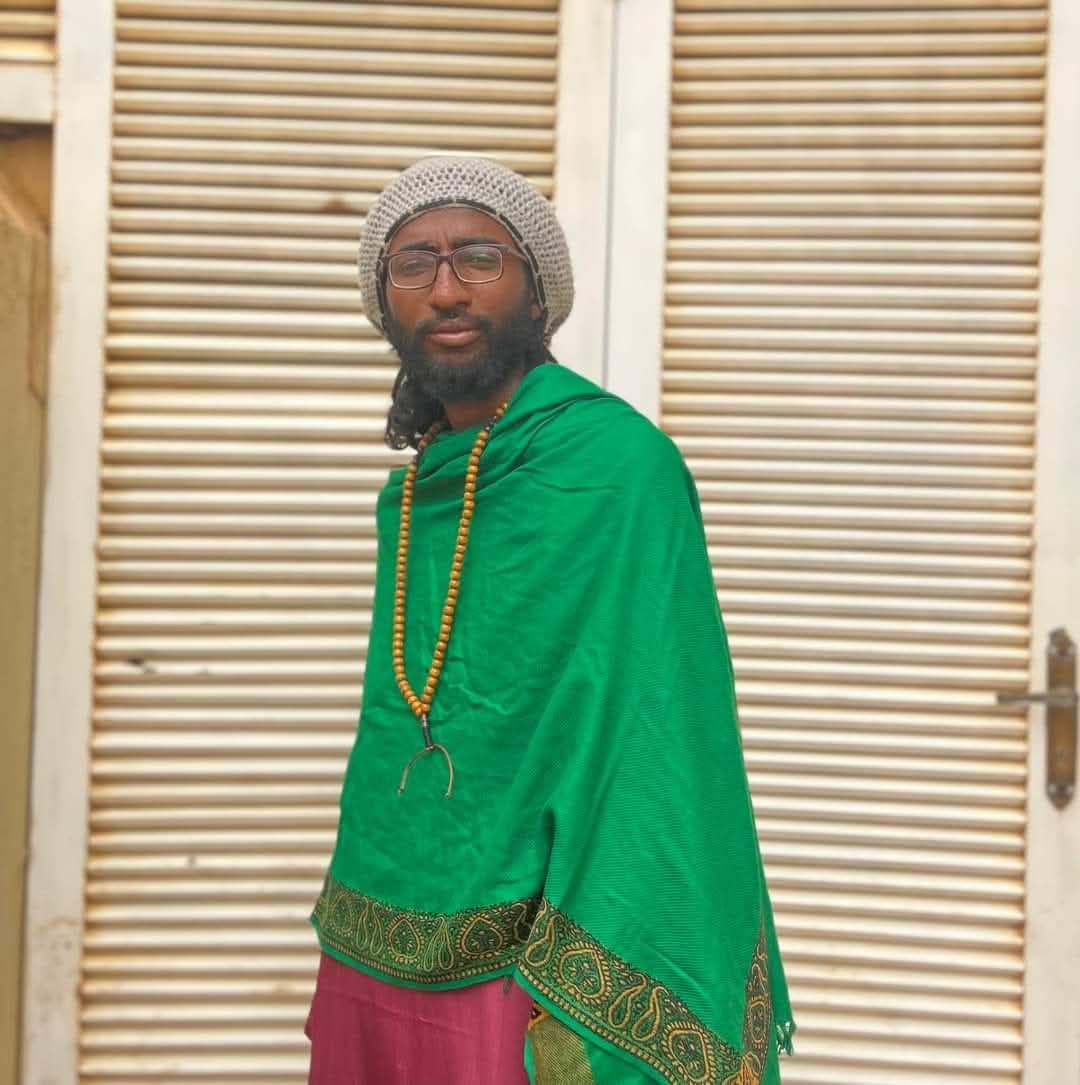
Volunteer Moamen Wad Zainab. Photo source: His Facebook account
Moamen is a leather engineer and founder of the "Black Craft" leather goods brand, and one of the prominent figures in Sudan’s leather industry. He is also a dedicated volunteer who has devoted all his time to serving those in need. Today, he continues his humanitarian work as a volunteer at Al-Naw Hospital and in emergency response rooms, firmly believing that with willpower and action, our nation can rise again.
Since the outbreak of war, Moamen and his fellow volunteers have been involved in coordinating efforts, disinfecting facilities, securing essential supplies, and supporting patients in need. His voice reflects many unheard voices inside Sudan and stands as a powerful example of civilian resilience and solidarity.
Testimonies from the Field: Moamen Wad Zainab Speaks
"Since the very first day the war broke out, I’ve been present at the hospital, offering help to patients and those in need, working as a volunteer. In the beginning, the situation was different—the cases we received were mainly injuries from stray bullets, shrapnel from shelling, or drone strikes, and random bombardments by the Rapid Support Forces, whether from Bahri or from the heart of Omdurman, from areas like Umbada, Salha, and others. But now, we are facing diseases such as cholera and skin infections caused by water contamination and the accumulation of corpses."
Inside the Hospital: Isolation Without Resources
Moamen recounts that with the spread of cholera, the crisis inside Al-Naw Hospital worsened significantly. The isolation ward was completely shut down after shocking images circulated, showing patients sleeping outdoors, under trees, inside tuk-tuks, or even lying on the ground, alongside bodies that had been left inside the center, either unclaimed or belonging to families unable to bury them under the necessary health precautions.
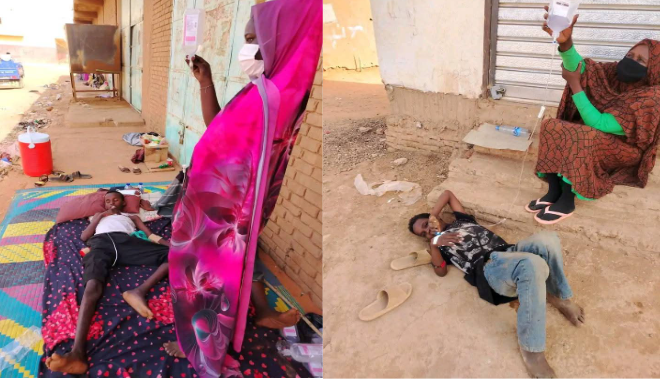
Patients lying on the ground in Al-Naw Hospital during the early days of the cholera outbreak. Source: Al-Naw Hospital
Momen adds: "The situation was so dire, which pushed us, the 'volunteers team,' to move along with the doctors to other centers that were still operating. We are now spread out across several of them and continue to provide assistance there.
We started receiving the first cholera cases quite some time ago, but the Ministry of Health was covering it up. We knew there were infections, but the available numbers were not high. There was no official announcement; nonetheless, cases began to come from areas like Omdurman and Salha, where the water is severely contaminated. I believe hundreds, maybe thousands of people lost their lives due to cholera in those areas, and in other places like Jabal Awliya, Khartoum, and Bahri. We faced a severe shortage of intravenous solutions, resuscitation tools, and masks."
Daily challenges... with simple tools
Volunteers face enormous challenges every day, from disinfecting individuals leaving isolation centers to securing masks and gloves, even the simplest tools like Ambu bags (manual resuscitators) are unavailable.
"We disinfected hands, feet, and even shoes to avoid transmitting the infection. Despite all this, we face a severe shortage of IV fluids, butterfly needles, and essential medicines."
Although there is ongoing support and many international organizations or individuals want to deliver aid to improve the situation, this support and assistance always face obstacles from officials on their way to us, which has made things very difficult for volunteers and patients. Momen always hopes that the paths will be eased and paved for everyone who wants to help, as this would serve the public interest.
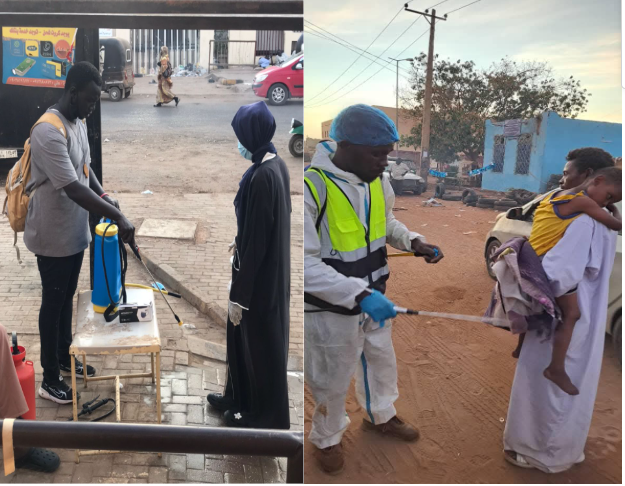
A picture showing sterilization inside the isolation ward of Al-Now Hospital, volunteer Moaz Matar. Source: Moamen Wad Zeinab's Facebook account
Isolation Centers? No Equipment... No Adequate Support
Momen reveals to us that the isolation center at Al-Naw Hospital was not equipped at all. It was originally a Quran memorization retreat that had been temporarily converted, without proper healthcare infrastructure to receive and care for patients. There was no sufficient support from the Ministry of Health, and organizations faced obstacles in intervening because they did not receive approval from the Ministry—perhaps out of fear of spreading panic among citizens. However, in his opinion, being prepared to face the danger is much better than ignoring it.
Momen adds, “Preparing to confront the epidemic is far better than denying it. Cholera has a known medical kit that must be available.”
Where Is the Awareness?
Given the weak system, Momen believes community awareness is absent. People do not know how to handle contaminated water, nor how to add chlorine, or how to store water properly. He continues,
“Cholera has a specific ‘kit,’ known tools and supplies that must be ready beforehand: such as dedicated water barrels, IV fluids, rehydration salts, detergents and disinfectants, spraying and sterilizing equipment, and control of flies and mosquitoes that transmit the infection, among others.”
Flies alone can transmit cholera from one patient to another, so there must be regular spraying campaigns in the affected areas, and real environmental organization, not just delayed reactive measures. Humanitarian organizations must act immediately to help limit the disease’s spread, not wait for it to worsen. The government and Ministry of Health must acknowledge the existence of cholera, not cover it up. This is a contagious, deadly, and catastrophic disease, and denying or ignoring it puts thousands of lives at risk.
Momen adds, “People die because they don’t have money to buy medicine or even to get tested, but since this is an epidemic, all means of testing and treatment must be free for them. Small details save lives, and awareness is a collective responsibility that starts with the media and reaches the smallest neighborhood.”
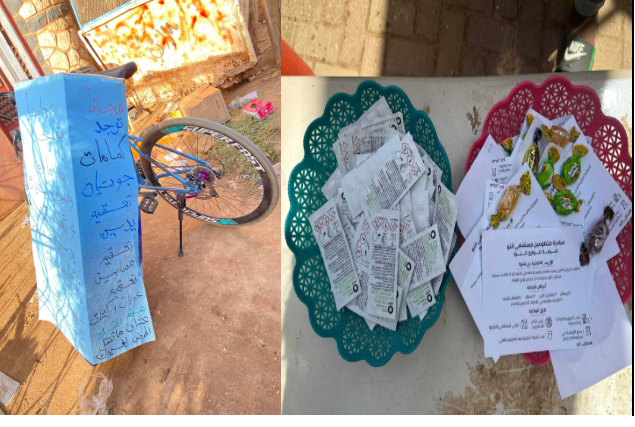
Awareness in isolation centers as a different kind of Eid gift for patients and their companions. Source: Moamen Wad Zeinab's Facebook account
What’s Next?
What is happening in Sudan today is not merely a health crisis; it is a true test of the global human conscience. The spread of cholera and the slow response literally means sacrificing the lives of thousands of innocent lives. Cholera can be contained, but only if efforts are united: to provide prevention and treatment tools, support local medical staff and volunteers, and carry out real community awareness campaigns.
In a calm but firm voice, Momen addresses both the local and international public opinion: “Sudan is living through a catastrophe. The citizen is the only victim, caught between bullets, cholera, and hunger. We need genuine humanitarian support. The whole world is watching Gaza and Ukraine, but no one sees our corpses, our diseases, and our sorrows. We have been demanding freedom, peace, and justice for a long time… and we will not reach them unless we first know the truth: Who is responsible? Why did this happen?
I am just a volunteer, but I believe that even a weak voice can reach if directed to the right ear willing to listen. We are not asking for pity. We are asking for partnership, for the right to live, and for the right for the world to see what is happening in our country.”
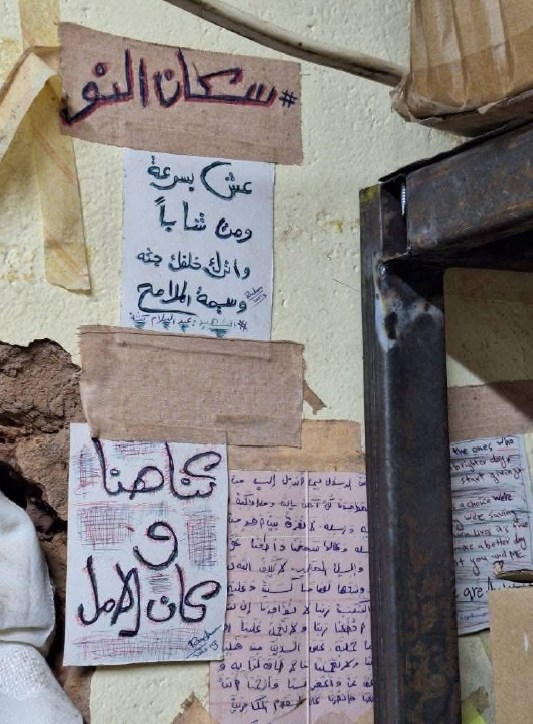
Free Pharmacy Murals. Source: Momen Wad Zeinab's Facebook page
